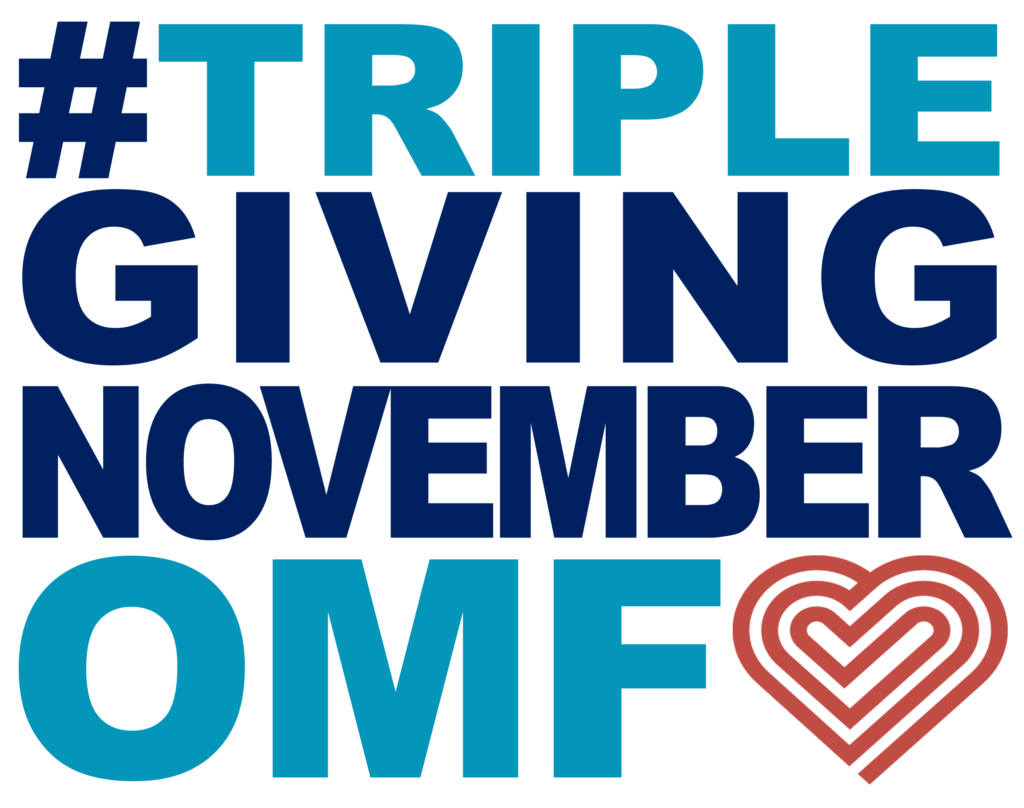Today, we are excited to share an interview with Alain Moreau, PhD. In this discussion, Dr. Moreau provides insights into his work on the molecular mechanisms underlying ME/CFS, with a focus on post-exertional malaise (PEM).
Remember – from November 1 to December 3, your donations to OMF will have three times the impact.


The Heart of the Matter
- Dr. Moreau at the OMF Collaborative Center at Montreal is studying changes in proteins and metabolites that correlate with post-exertional malaise.
- The team is also using these molecular markers to subtype patients, which may help guide precision medicine treatment plans in the future.
- The project is designed to incorporate housebound patients, which may yield results that are applicable for a wider variety of patients.
- This study is in the “Data Analysis” stage of the research process.
Dr. Moreau, the Director of Open Medicine Foundation’s Collaborative Center at Montreal, is conducting a study on deep proteome and metabolome profiling to decode myalgic encephalomyelitis (DOMINO-ME). This study is designed on the principles that we can illustrate differences in patients at the molecular level and use these proteins and metabolites to enable precision medicine for better treatment of each person.
The DOMINO-ME study utilizes a stress test to explore changes in the blood—including proteins, metabolites, and miRNA production—before, during, and after an episode of post-exertional malaise (PEM). This longitudinal look at molecular markers allows the study team to identify changes that specifically correlate with PEM, which may ultimately lead to a better understanding of how to reduce or eliminate crashes.
In addition to evaluating changes in molecular markers after provocation, these markers are being correlated with each participant’s physiology or symptoms (e.g., orthostatic intolerance). In this way, the study team may be able to subtype patients to help identify different treatments that would work better for different subtypes. The molecular markers would then also be used to monitor response to each drug. Importantly, DOMINO-ME is designed to include severe, housebound patients who are unable to come into a clinic. Ultimately, findings from this study might therefore be translatable to more ME/CFS patients.
Dr. Moreau’s DOMINO-ME project is in the thick of the “Data Analysis” stage of the research process. Excitingly, some of that analysis is complete and a manuscript is in preparation.
Click Here to Read the Video Trancript
Video Transcript
Dr. Meadows: Hello everyone, and thank you for tuning into this week’s interview. These next couple weeks will highlight some of our international collaborative work, and for today, I am very pleased to be joined by the director of Open Medicine Foundation’s Collaborative Center at Montreal, Dr. Alain Moreau.
In brief, Dr. Moreau’s center focuses on multiomics pathogenesis studies, and treatment targets for ME/CFS and Long COVID. So welcome, Dr. Moreau. Thank you for joining me.
Dr. Moreau: Thank you very much, Danielle, for this opportunity.
Dr. Meadows: All right, so today we wanted to talk to you about one of your projects, Deep Proteome and Metabolome Profiling to Decode ME, or as we fondly like to call it, DOMINO-ME. So would you be able to start off just kind of giving a high-level overview of maybe your rationale for wanting to conduct this study and kind of what the study looks like in general?
Dr. Moreau: Yes. So DOMINO-ME, as the name evokes, is a set of dominos that will complete the previous studies that we have done to really understand what is behind myalgic encephalomyelitis and also what can we leverage in terms of protein or even metabolite that can guide us toward better treatment and more effective treatments using precision medicine.
So, as you may know, and we demonstrate, and others also demonstrate that ME/CFS comes with different colors and flavors, if I may say so. Patients are not the same, clinically speaking. And at the molecular level, we can also illustrate those differences, which means that we could do a better job of defining or repurposing existing drugs to treat the most debilitating symptoms by making sure that we target the right people with the right drug at the right time.
This is what is the main overarching goal of precision medicine. DOMINO-ME is really aligned with these principles where we use a provocation maneuver, where we induce PEM.
As you know, PEM is really a center hallmark of leading to crashes and exacerbating many symptoms and sets to wait that patient presents with bad days versus good days.
We applied the standardized maneuver, which allowed us, for the very first time—and we are, I think, a very rare cohort worldwide—to study housebound patients.
So, because these individuals rarely participate in any studies, because they cannot walk into clinics or in the lab. So, by studying severe patient, that gave us a great advantage to really better decode what is behind ME/CFS.
And, of course, we are studying also patients that are moderately affected as well. But the vast majority of the participants in our cohorts are so sick that we need to send a clinical nurse. So these are the main principles behind DOMINO-ME.
Dr. Meadows: That’s great. Thank you so much for that explanation. And that’s really wonderful that you’re able to study severe patients because they are so often left out of research. And that’s really great that you’re able to include them.
Do you think you could elaborate a little bit more on kind of the multiomic aspect of this and what makes that unique to this study?
Dr. Moreau: Yes, so we have some limitations in terms of the tissues or cells that we can study. A lot of research, and I include ours, we study peripheral blood mononuclear cells or blood cells because that’s relevant for the disease because a lot of immune perturbation and dysfunction occur in ME/CFS.
So, this is very relevant. We study them in terms of microRNA production, messenger RNA. We have recently been able to stratify patients along five subgroups where we can identify very specific genes involved in immune response, how they can help to fight or not against different viruses.
So, this is very important. And we can leverage some of these discoveries to better define drugs treatment, to again, to using the lens of precision medicine to really target the right patient at the right time with the right drug, because some of those drugs are very dangerous somehow.
So they are so potent to tweak your immune system. So we have to be careful to make sure that we are targeting the right person for the right reason. And having those different omic approaches, these are not only tools to identify the right subset of individuals to be treated eventually, but also to monitor the response toward the drugs.
What I try to convey today is that we are not just developing tools for the sake of doing better research, but to make sure that those tools will be translating in useful clinical tool in the real-world setting to assist clinicians to offer better treatment and to make sure that such treatment will be efficacious and also to be safe for the person that will receive them.
Dr. Meadows: Yeah, that’s wonderful. So, can you give kind of a just status update of where the study stands right now? Are you still collecting data? Are you analyzing, what does that look like right now?
Dr. Moreau: Yes. So right now we have such a bunch of data. So we are in the process to submit our very first manuscript. But the way that we analyze the data sets is very different than any other group. As I said, we are using all the tools that we developed before.
So not only we are looking about change after the stress test, but sometimes we can check five days later to see how the participants recover. So this is another particularity of DOMINO-ME.
So it’s a longitudinal assessment for the full protocol. We combine those that are set protein or metabolites with changes in terms of the physiology of the individual. So if an individual has POTS or some kind of orthostatic intolerance, we can figure out what are the markers or the causes of those orthostatic intolerance and POTS and verify if we can, eventually knowing now the subgroup or the subset of individuals, so we can figure out better treatment to prevent and reduce the symptom associated with orthostatic intolerance.
For just an example, by monitoring the metabolite in the morning urine, so that will allow us a much longer follow-up, especially after the induction of post-exertional malaise.
As you know, post-exertional malaise is developing not at the same pace for everyone with the same intensity. So we may figure out that some metabolites can guide us to develop maybe some treatment. Not necessarily using drugs, we can eventually use supplements to replace the missing metabolite, and that can guide us to attenuate post-exertional malaise.
Because at the end of the day, and I met so many patients during the last ten years now, that if we can avoid crashes, if we can reduce the severity of PEM, in fact, if we can obliterate PEM, they will have almost normal life, even if it’s not a definitive cure for ME/CFS, removing PEM from this equation will be a big, big step forward for most, if not all ME/CFS patients.
So that’s why we are really centering our research around PEM and by focusing on more severely affected individuals to make sure that if we find something that will probably be able to help to treat a majority, if not all ME/CFS patients.
Dr. Meadows: Yeah, thank you. That’s really wonderful research to do. So maybe I’ll give a summary in my words and you can make sure that I have this right, just to put things into a little bit different words.
From my understanding, you’re studying mostly severely ill patients, but also moderate patients, and looking at really kind of how things in their blood change, based off of inducing post-exertional malaise and then being able to use how those proteins and metabolites in their blood change in order to kind of figure out different ways to treat different subgroups. Does that sound correct?
Dr. Moreau: Exactly.
Dr. Meadows: Perfect. Well, thank you so much for joining me today, Dr. Moreau. This has been really wonderful to hear about your research, and I know that it will be really exciting to see what comes out of this study.
Dr. Moreau: Thank you very much, Danielle, and thank you to all our supporters that make this research possible.
Dr. Meadows: Thank you for tuning in to hear about Dr. Moreau’s work. And if you’d like to learn more about his research or any of our other research, you can visit our website at omf.ngo. Thank you.
We are not seeking new participants for this study at this time. If you would like to be considered for future research opportunities, please consider joining our OMF StudyME Registry.
OMF also accepts gifts of stock, cryptocurrency, real estate and retirement assets.


